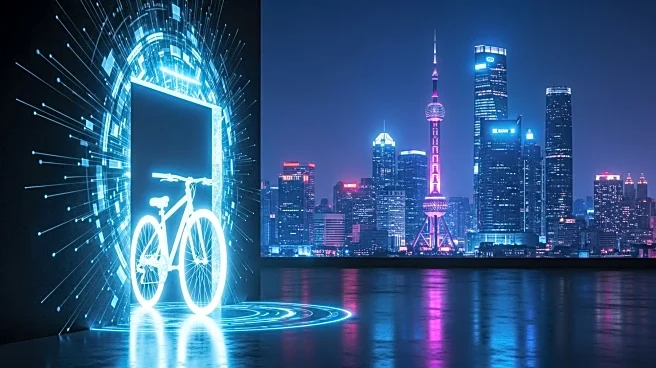What's Happening?
TRON: Ares, the third installment in the TRON franchise, presents a new twist by featuring human-shaped artificial intelligence programs entering the real world, rather than humans entering the digital realm. The film stars Jared Leto, Greta Lee, and Evan Peters, and aims to offer a fresh perspective on the interaction between digital and physical realities. This narrative shift marks a significant departure from the previous films, which focused on human characters navigating a digital universe. The film's release has sparked discussions about its potential to revitalize the franchise and attract a new audience.
Why It's Important?
The introduction of AI programs into the real world in TRON: Ares reflects broader societal themes regarding the integration of artificial intelligence into everyday life. As AI technology continues to advance, the film's premise resonates with ongoing debates about the ethical and practical implications of AI in society. This cinematic exploration may influence public perception and understanding of AI, potentially impacting industries related to technology and entertainment. The film's success could also drive further investment in AI-themed narratives, encouraging filmmakers to explore similar concepts.
What's Next?
Following the release of TRON: Ares, industry analysts and fans will be watching closely to see how the film performs at the box office and whether it successfully reinvigorates the TRON franchise. The reception of the film could lead to further sequels or spin-offs, expanding the narrative universe. Additionally, discussions around the film's themes may prompt tech companies and policymakers to consider the implications of AI integration more seriously, potentially influencing future technological developments and regulations.
Beyond the Headlines
TRON: Ares not only entertains but also prompts viewers to consider the cultural and ethical dimensions of AI. The film's portrayal of AI programs in the real world challenges audiences to think about the boundaries between human and machine, and the potential for AI to alter societal norms. This narrative could contribute to a broader cultural shift in how AI is perceived, encouraging more nuanced discussions about its role in shaping the future.









